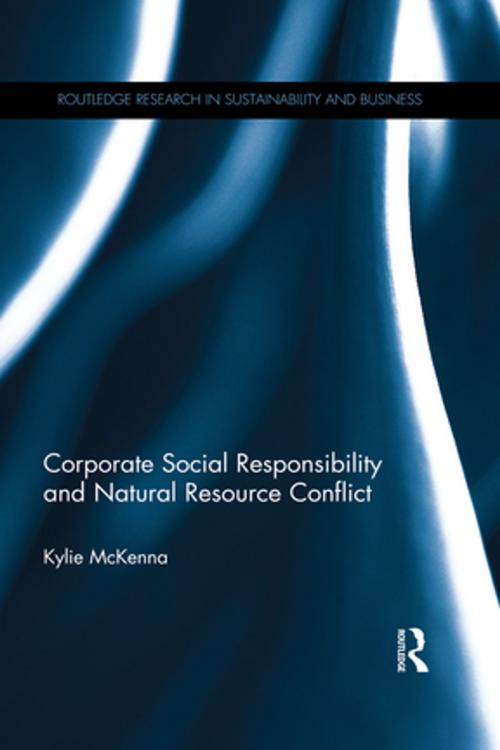Corporate Social Responsibility and Natural Resource Conflict
Business & Finance, Economics, Sustainable Development, Nonfiction, Social & Cultural Studies, Political Science, Government, Public Policy| Author: | Kylie McKenna | ISBN: | 9781317667384 |
| Publisher: | Taylor and Francis | Publication: | October 23, 2015 |
| Imprint: | Routledge | Language: | English |
| Author: | Kylie McKenna |
| ISBN: | 9781317667384 |
| Publisher: | Taylor and Francis |
| Publication: | October 23, 2015 |
| Imprint: | Routledge |
| Language: | English |
This book examines the possibilities and limitations of corporate social responsibility in minimising the violent conflict often associated with natural resource exploitation. Through detailed and penetrating empirical analysis, the author skilfully asks why previous corporate social responsibility practices have not always achieved their aims.
This theme is explored though an analysis of two of the most complex and protracted conflicts linked to natural resources in the Asia Pacific region: Bougainville (Papua New Guinea) and West Papua (Indonesia). Drawing on first-hand accounts of corporate executives and communities affected by resource conflict, this book documents the translation of global corporate social responsibility into local peace. Covering topics as diverse as post-colonialism, law, revenue distribution, security, the environment and customary reconciliation, this ambitious text reveals how and why current corporate social responsibility initiatives may be unable to assist extractive companies avoid social conflict. The study concludes that this is attributable to the failure of extractive companies to respond to the social and environmental issues of most concern to local host communities. The idea is that extractive companies could actively contribute to peace building if they were to engage with the interdependencies between business activity and the root causes of conflict.
What sets this book apart is that it offers a holistic framework for extractive companies to engage with the complexity of resource conflict. ‘Interdependent Engagement’ is an integrated model of corporate social responsibility that encourages extractive companies to deal with the underlying causes of resource conflict, rather than applying solutions or critiques of their symptoms.
This book examines the possibilities and limitations of corporate social responsibility in minimising the violent conflict often associated with natural resource exploitation. Through detailed and penetrating empirical analysis, the author skilfully asks why previous corporate social responsibility practices have not always achieved their aims.
This theme is explored though an analysis of two of the most complex and protracted conflicts linked to natural resources in the Asia Pacific region: Bougainville (Papua New Guinea) and West Papua (Indonesia). Drawing on first-hand accounts of corporate executives and communities affected by resource conflict, this book documents the translation of global corporate social responsibility into local peace. Covering topics as diverse as post-colonialism, law, revenue distribution, security, the environment and customary reconciliation, this ambitious text reveals how and why current corporate social responsibility initiatives may be unable to assist extractive companies avoid social conflict. The study concludes that this is attributable to the failure of extractive companies to respond to the social and environmental issues of most concern to local host communities. The idea is that extractive companies could actively contribute to peace building if they were to engage with the interdependencies between business activity and the root causes of conflict.
What sets this book apart is that it offers a holistic framework for extractive companies to engage with the complexity of resource conflict. ‘Interdependent Engagement’ is an integrated model of corporate social responsibility that encourages extractive companies to deal with the underlying causes of resource conflict, rather than applying solutions or critiques of their symptoms.















